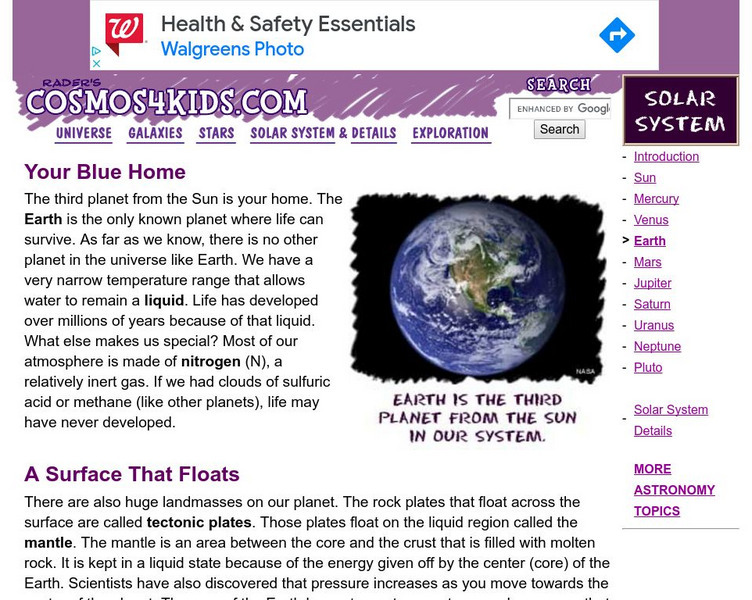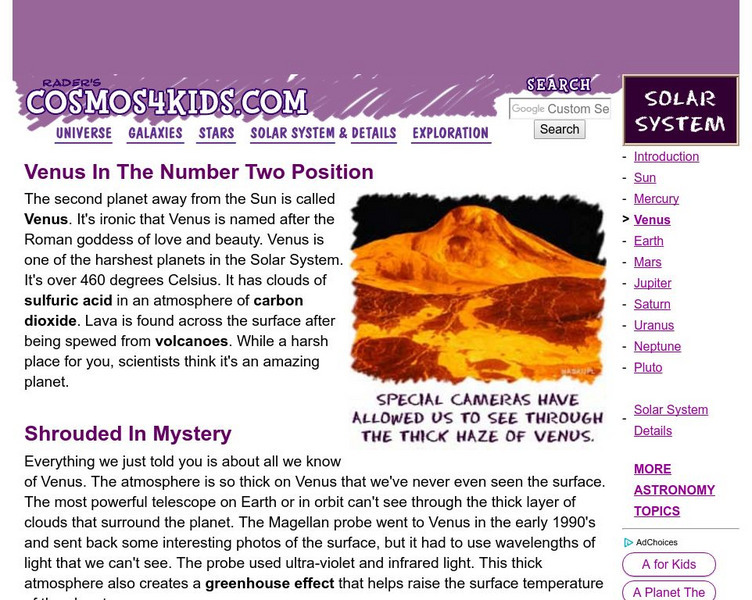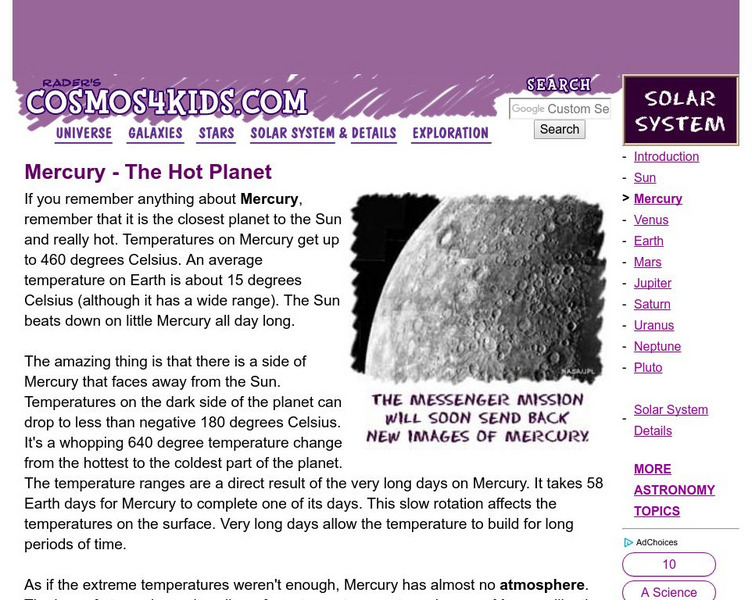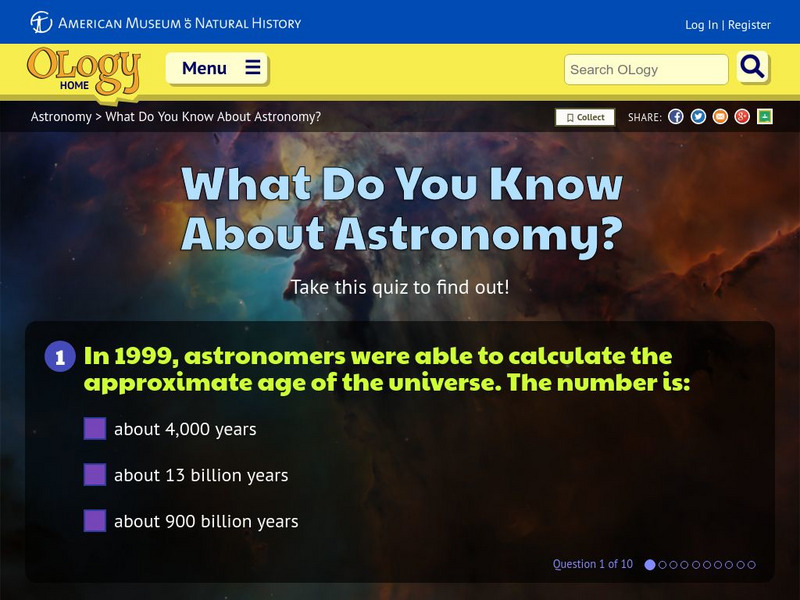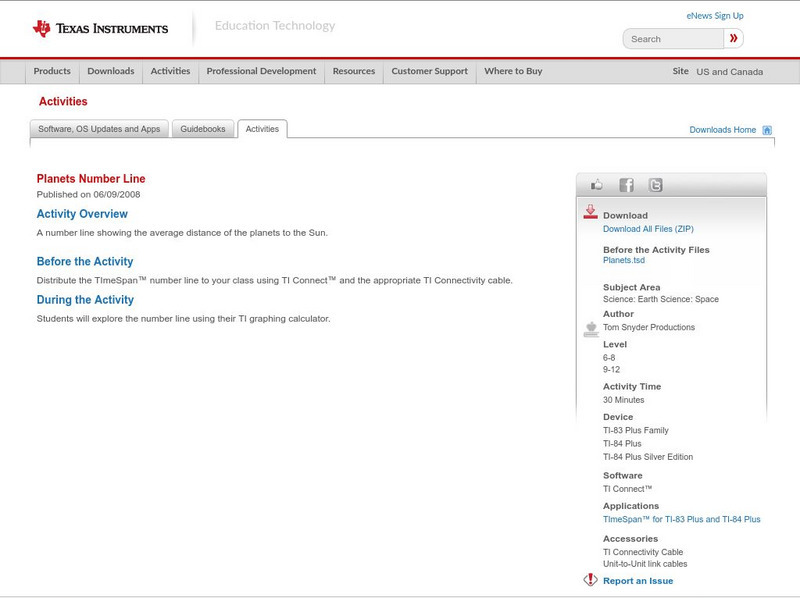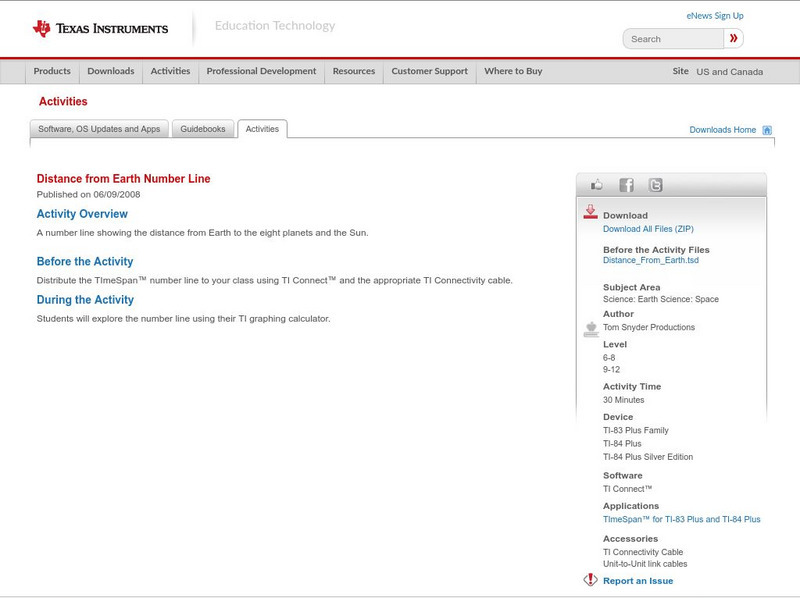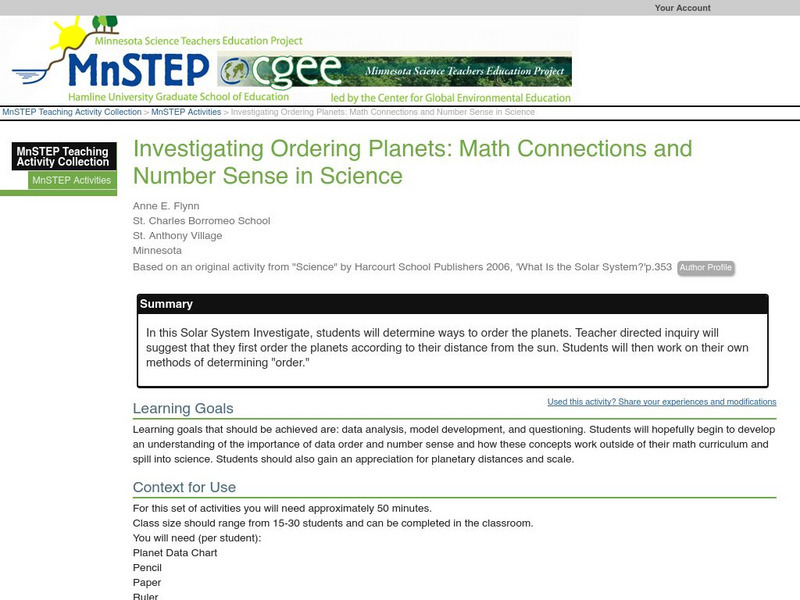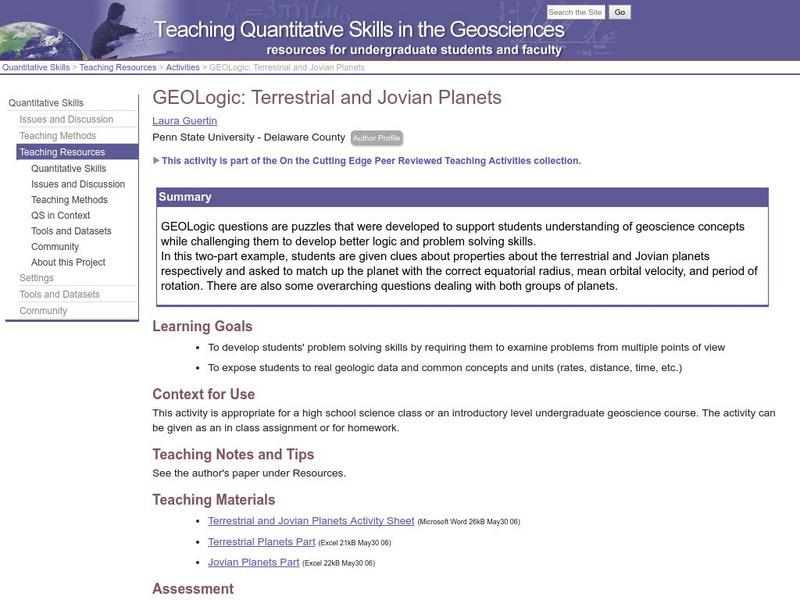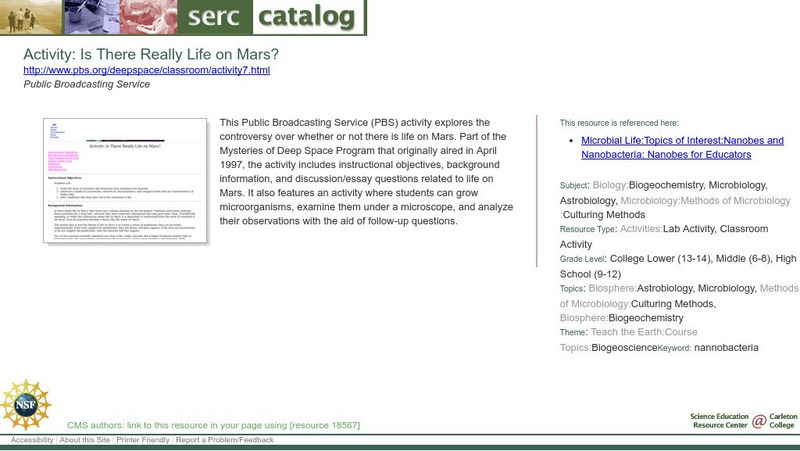Cosmos 4 kids
Cosmos4 Kids: Solar System: Jupiter
Learn all the basic facts about the planet Jupiter. The brief, to the point text makes this site most suitable for younger researchers.
Cosmos 4 kids
Cosmos4 Kids: Solar System: Mars
Learn the basic facts about the planet Mars. The brief, to the point text makes this site most suitable for younger researchers.
Cosmos 4 kids
Cosmos4 Kids: Solar System: Earth
Learn the basic facts about planet Earth, and its unique position as the only known planet where life can survive. The brief, to the point text makes this site most suitable for younger researchers.
Cosmos 4 kids
Cosmos4 Kids: Solar System: Venus
Learn the basic facts about the planet Venus. The brief, to the point text makes this site most suitable for younger researchers.
Cosmos 4 kids
Cosmos4 Kids: Solar System: Mercury
Learn all the basic facts about the planet Mercury. The brief, to the point text makes this site most suitable for younger researchers.
NASA
Nasa: Solar System Exploration: Planets
This impressive compilation of ideas is a great source for space science. Loaded with extra links for further information on the solar system.
Cosmos 4 kids
Cosmos4 Kids: Everything Gathers
Understand that smaller parts make up the larger parts of our solar system. See that gas and dust come together to form a star, small rocks and asteroids come together to form planets, and so on. This page is a reference page that...
Library of Congress
Loc: Poetry 180: Forgotten Planet
This poet reminisces about childhood as he listens to his daughter's lack of undertanding about the names of the all of the planets.
California Institute of Technology
Spitzer Science Center: Historias Desde Espacio: Premiacion a Las Planetas
All the planets are competing to see who is the best planet in the Solar System. Read the story in Spanish to learn the results of the pageant. Excellent source of information presented in a fun manner.
American Museum of Natural History
American Museum of Natural History: O Logy: What Do You Know? Astronomy
Take this ten-question self-scoring quiz to test your knowledge of astronomy facts: age of the universe, why stars and planets are spheres, where other life might exist in the outer space, the Milky Way, and more.
University of California
At Home Astronomy: Hands on Science Experiments for the Entire Family
A collection of ten hands-on science experiments for the entire family that will help you understand concepts in astronomy. Make an astrolabe, find the size of the sun and moon, build a lunar settlement, find out about meteoroids, shadow...
American Museum of Natural History
American Museum of Natural History: Ology: Cosmic Cookies
Roll your mouse over the planets in our solar system to read a vignette about each. Then, link to the recipe for directions to create miniature planet cookies that look like the real thing.
Nine Planets
The Eight Planets: Just for Kids
Here is a clear, simple picture of the solar system. Click on the names of the planets to learn more about each. Clicking on underlined terms takes you to more and more detailed scientific information.
American Museum of Natural History
American Museum of Natural History: Ology: Astronomy: In Pictures: Beyond Planet Earth
What would it be like to travel across the solar system and explore space? Take a look at some of the places that humans might go to someday, and the questions that scientists are asking.
Texas Instruments
Texas Instruments: Planets Time Line
A number line showing the average distance of the planets to the Sun.
Texas Instruments
Texas Instruments: Distance From Earth Time Line
A number line showing the distance from Earth to the eight planets and the Sun.
Science Education Resource Center at Carleton College
Serc: Investigating Ordering Planets: Math Connections & Number Sense in Science
In this Solar System Investigate, students will determine ways to order the planets. Teacher directed inquiry will suggest that they first order the planets according to their distance from the sun. Students will then work on their own...
Science Education Resource Center at Carleton College
Serc: Geo Logic: Terrestrial and Jovian Planets
Through GEOLogic puzzles, students are given clues about properties about the terrestrial and Jovian planets respectively, and challenged to match the planet with the correct equatorial radius, mean orbital velocity, and period of rotation.
Science Education Resource Center at Carleton College
Serc: Activity: Is There Really Life on Mars?
This Public Broadcasting Service (PBS) activity explores the controversy over whether or not there is life on Mars. Part of the Mysteries of Deep Space Program that originally aired in April 1997, the activity includes instructional...
National Institute of Educational Technologies and Teacher Training (Spain)
Ministerio De Educacion: La Situacion De La Tierra en El Universo
Throughout this unit you will make an imaginary journey that will transport you from the remotest infinity of the universe around us, to the surface of our planet. During this trip you will see the main features and components of our...
Society for Science and the Public
Science News for Students: So Many 'Earths'
Article reports on the recent discovery that many suns in the universe host "Earth-like" planets. Includes a vocabularly list.
PBS
Pbs Learning Media: The Sun and Planets
Observe the sun and the rotation of the planets in this moving image from NASA. Observe the axial tilts and directional rotation of planets and how they differ for each planet. Be sure to read the background information on how planets...
PBS
Pbs Learning Media: The Planets of the Solar System
As technology has advanced, so do our views and understanding of the solar system. No longer do we have to rely on our unaided eyes to observe planets. View these high-quality images of planets provided by NASA spacecraft.
NASA
Nasa: Kepler: A Search for Habitable Planets: Transit Tracks
Classroom lesson for teaching astronomy uses PowerPoint presentations and illustrations of Kepler's light curves used to discover planets.


